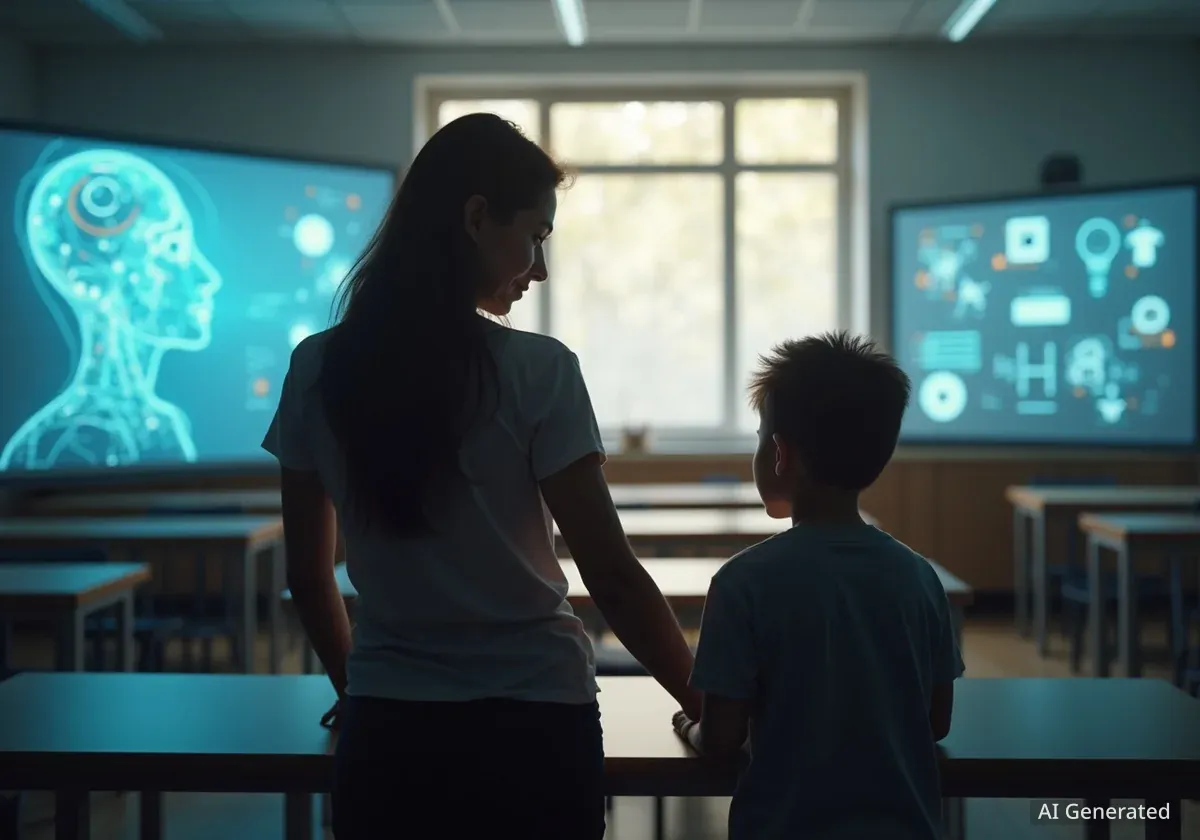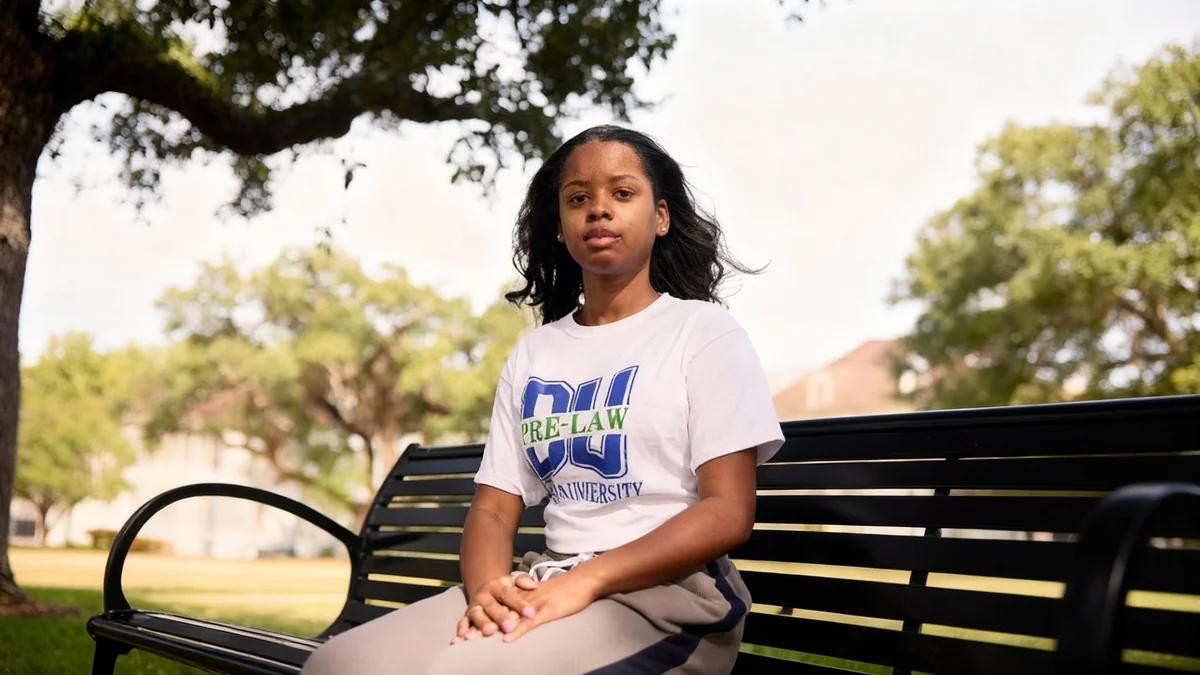The rapid advancement of artificial intelligence is prompting a fundamental reevaluation of parenting and education. A growing number of parents, particularly within the technology sector, are questioning whether traditional schooling can adequately prepare children for a future where many conventional career paths may become obsolete. This has led to the exploration of alternative educational models and parenting philosophies focused on skills like adaptability, problem-solving, and personal initiative.
From AI-driven private schools that prioritize life skills over traditional coursework to radical parenting methods that eliminate all rules, new approaches are emerging. These methods aim to cultivate what some call "agency," the ability to act independently and make choices in a world that is becoming increasingly unpredictable.
Key Takeaways
- Parents and tech leaders are concerned that traditional education is not preparing children for an AI-driven job market.
- New educational models like the Alpha School use AI to accelerate academic learning, freeing up time for practical life skills.
- Philosophies such as "The Sovereign Child" advocate for eliminating rules and coercion to foster independence and problem-solving abilities.
- The concept of "agency," or the capacity for independent action, is being promoted as a critical skill for navigating an uncertain future.
- While some embrace radical changes, others are adopting a more moderate approach, focusing on resilience, creativity, and personal happiness.
A New Form of Parental Anxiety
The uncertainty surrounding AI's impact has created a distinct form of parental concern. Julia Wise, a mother of three and part of the Effective Altruist community, articulated this in an essay titled “Raising Children on the Eve of AI.” She compared the current situation to preparing children to be blacksmiths in 1750, just before the rise of factories.
Wise and her husband, Jeff, who works in biosecurity, consider several possible futures for their children, ranging from a post-scarcity utopia with universal basic income to a global disaster. “I feel a bit like we’re preparing children to be good blacksmiths or shoemakers in 1750 when the factory is coming,” she wrote, highlighting the potential mismatch between current education and future needs.
This sentiment is shared across the tech industry. Rachael Horwitz, a veteran of Google and Facebook, suggests that non-technical skills and extroverted personalities will become more valuable. Similarly, Anthropic co-founder Ben Mann has questioned the long-term relevance of traditional academic achievements, stating, “I don’t think any of it’s going to matter… The facts are going to fade into the background.”
The Concept of Agency
A central theme in these discussions is the cultivation of "agency." Popularized in tech circles by figures like investor Eric Weinstein, high agency refers to a proactive mindset—the ability to identify problems and act to solve them rather than accepting given circumstances. OpenAI CEO Sam Altman and Y Combinator CEO Garry Tan have both identified agency as an essential trait for future success, arguing it will be a key differentiator when raw intelligence can be replicated by machines.
The Alpha School: An AI-Powered Educational Model
One response to this challenge is the Alpha School, a private institution founded in Austin, Texas, in 2014. The school has since expanded to 15 campuses and offers a radical departure from conventional education, with an annual tuition of $40,000 at its Austin location.
Alpha's model is built on an AI-driven platform that it claims allows students to complete their core academic work in about two hours per day, learning at a rate 2.6 times faster than in traditional schools. This efficiency is achieved through personalized learning paths and a focus on achieving 90% mastery in a subject before moving on.
Focus on Life Skills
With academic work condensed, the remainder of the school day is dedicated to developing practical life skills. Co-founder MacKenzie Price believes this focus on entrepreneurship, public speaking, and resilience is what children truly need for the future.
Student requirements at Alpha are unconventional. A second-grader, for instance, must complete a checklist that includes running five kilometers, delivering a two-minute speech evaluated by an AI coach, and independently scheduling a playdate by calling another parent.
Unconventional Projects
Older students at Alpha have engaged in projects such as starting and managing an Airbnb business and sailing a boat from Florida to the Bahamas, all designed to build real-world competence and self-reliance.
The school's methodology is partly based on the work of educational psychologist Benjamin Bloom. His research found that students with one-on-one tutoring performed significantly better than their peers in a traditional classroom setting. Alpha aims to replicate this effect using AI tutors and data-driven monitoring, which includes tracking students' eye movements and facial expressions to gauge focus.
The Sovereign Child: A Philosophy of Radical Freedom
An even more radical approach is detailed in the book The Sovereign Child by Dr. Aaron Stupple. Promoted by prominent investor Naval Ravikant, the book advocates for a parenting philosophy called Taking Children Seriously (TCS), which rejects all forms of coercion and rules.
Based on the idea that children are autonomous individuals, TCS encourages parents to problem-solve collaboratively with their children rather than imposing restrictions. Stupple, a hospital doctor and father of five, applies this by placing no limits on his children's food, screen time, or sleep schedules. His children are "unschooled," meaning they follow no set curriculum and learn through self-directed exploration.
“Agency is everything in the Sovereign Child parenting framework,” Stupple stated. “The old strategy would drown in the new world.”
In practice, this means allowing children to take calculated risks under supervision. Stupple described coaching his four-year-old daughter on how to safely operate a hot grill rather than simply telling her to stay away. This approach, he argues, builds true understanding and problem-solving skills essential for an unknowable future.
Critics argue this method could lead to significant knowledge gaps and a lack of boundaries. However, Stupple contends that organic, interest-driven learning is more durable. He reports his children have learned about complex topics like the solar system and DNA through their own curiosity, often fueled by online videos.
Finding a Middle Ground
While some parents are drawn to these specialized and sometimes extreme methods, many are seeking a more balanced approach. The uncertainty of the future is causing a shift in priorities, with less emphasis on traditional academic achievement and more on well-being and practical skills.
Julia Wise, despite her concerns, sends her children to public school. She has, however, adjusted her priorities. “The prospect of a superintelligence-transformed future makes me more prioritize them having a happy childhood,” she explained. This includes allowing her daughter to miss school for folk-music events, which she sees as developing a valuable, human-centric skill.
This shift is echoed by others in Silicon Valley. Rachael Horwitz noted a “chillness related to achievement culture” among her peers. Similarly, venture capitalist Chamath Palihapitiya expressed a newfound appreciation for the social and psychological development offered by large state universities, a view he would have rejected just a few years ago.
Ultimately, whether through AI-powered schools, radical unschooling, or a renewed focus on happiness and resilience, parents are actively trying to equip their children with the tools to navigate a world that is being fundamentally reshaped by technology. The consensus is that adaptability, creativity, and a strong sense of self will be more valuable than any specific set of memorized facts.




